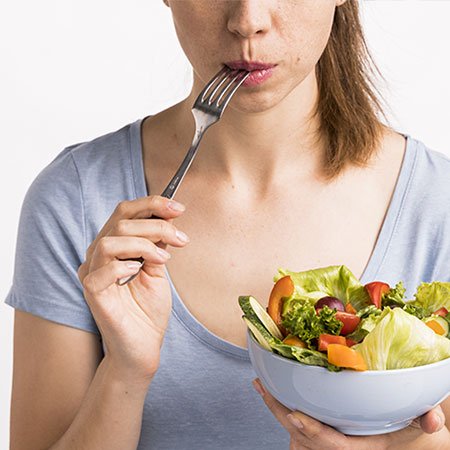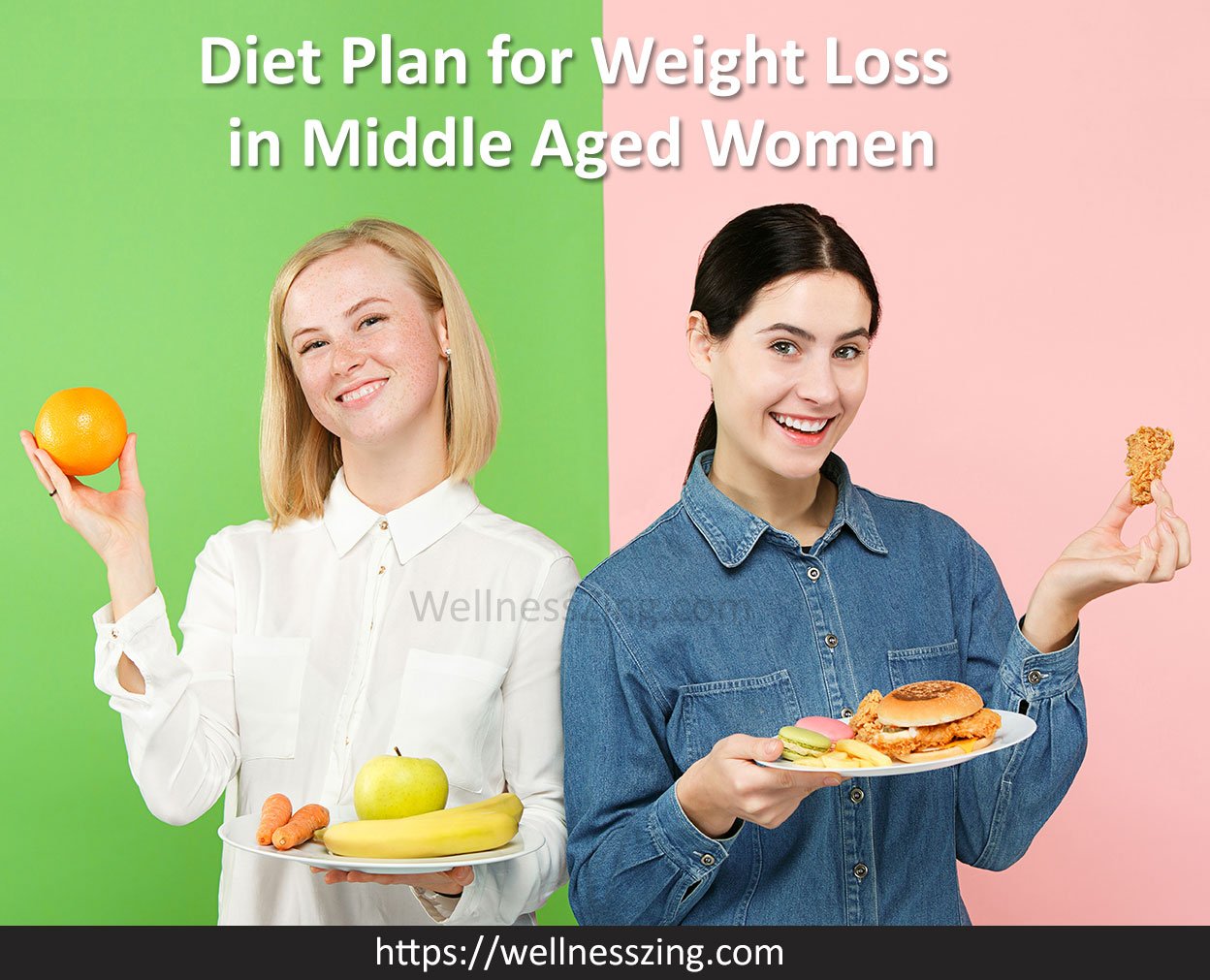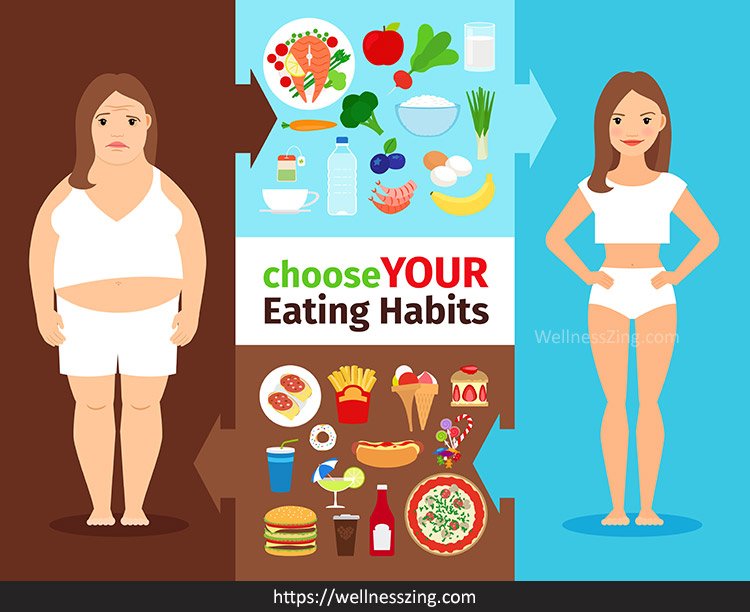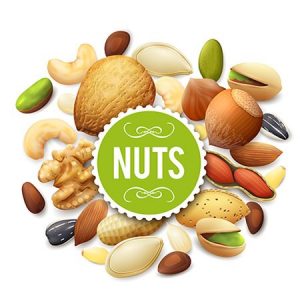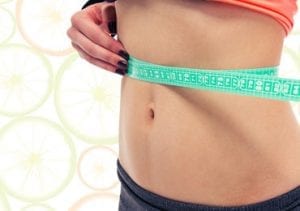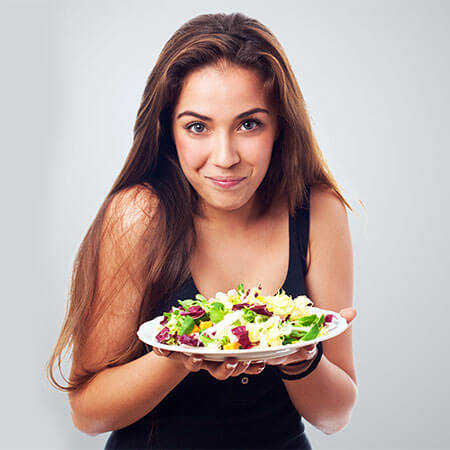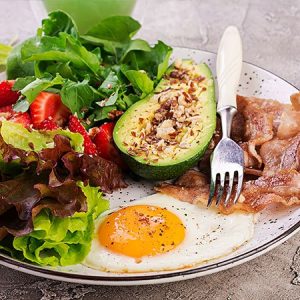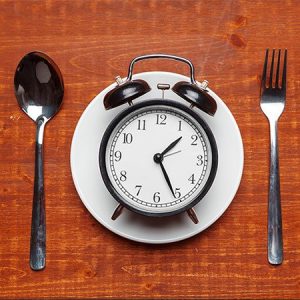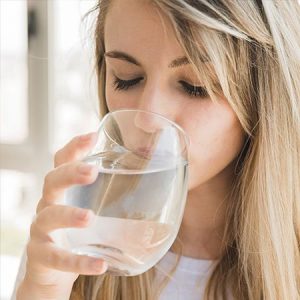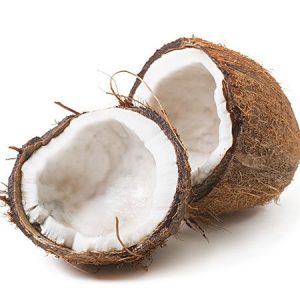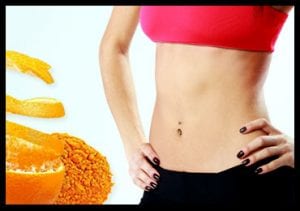Maintaining the optimum body weight has always been a constant concern for people of all age groups. We often tend to neglect what is right to consume in terms of quality and quantity. For achievable weight control over a long period of time, the most essential hallmark in the behavioral term is self-regulation. A healthy diet and regular exercise have always been the key factors in maintaining an ideal body weight.
A simple, effective and achievable diet plan is needed in achieving a sustainable healthy lifestyle. In order to gain the daily essential nutrients, consuming a large variety of foods in balanced proportion is essential.
A weight loss diet should be planned in such a way that our daily eating pattern and timing is not hampered completely. It may only undergo certain modifications. According to various studies conducted for weight loss maintenance, it was resulted that if emotional eating was lowered and a flexible dietary pattern was adopted, weight loss can be achieved in sustainable form. Seeking professional help in order to choose food wisely and following an effective diet plan can make a commendable difference in our lives.
There are various changes that our body undergoes as our age advances and accordingly the nutritional requirements also changes. As we step into our middle age, there are various changes that our body tends to experience where the nutritional priorities should be modified and taken care of. After the age of 30, the nutritional status is observed with various physiological, psychological and immunological changes and the overall energy requirement is also found to decrease gradually.
However, the requirements for proteins, carbohydrates, vitamins and minerals are not found to diminish. The metabolic rate and nutritional requirements change at a considerable rate in middle aged women. The metabolism (rate at which the body converts food into energy) slows down due to reduced muscle mass and the metabolically active tissue mass. Various hormonal imbalances, reduced activity levels and medical conditions can bring a serious toll on women’s health at this age.
You may want to learn about the benefits of Bitter Gourd for your health!
Many of us often complain about failure of a weight loss diet. The sole reason behind it is that they primarily focus on short term changes which lead to temporary weight loss but are unable to identify the underlying factors causing it. Keeping good control over your taste buds is not a tasteless process overall. For accomplishing your goals, it isn’t necessary to let go off your favorite food completely, keeping a track to your customized diet plan would be enough. Keeping every aspect in account, certain pointers should be taken into consideration:
- Make sure your diet oriented goals are achievable.
- Each individual is different and hence a particular set of diet plan might not be effective for all. Customization is essential based on weight, height, activity level and dietary habits.
- Do not compare yourself with others. Stay positive and believe in your own pace towards achieving a healthier you.
While planning a weight loss diet for middle aged women, there are several eating habits that should be evaluated and modified on a daily basis:
- Housewives have a tendency of continuously nibbling in between meals which makes them consume more calories than they burn.
- Women who are mostly engaged with household chores throughout the day, gets less time for mindful eating and often end on gobbling food at irregular timings.
- Emotional eating amongst middle aged women is common. They do not follow the internal hunger signals and rather respond to external cues while eating.
- Not wanting the leftover foods to be thrown away, many women forcibly consume food more than their body requirements.
- Consuming snacks regularly and cravings for all the junk food (primarily consisting of high carbohydrates and fats) is another major cause for weight gain or inefficiency in maintaining the optimum weight.
- Social gatherings and several cultural occasions are often practiced by women; which ultimately contributes to excess calorie consumption towards the end of the day.
- Feasting and fasting should be avoided. Not eating anything for days based on religious factors and otherwise eating all lavish can be strenuous for the body to adjust.
- Inclusion of predominantly non-vegetarian, highly processed, high fat diet can promote weight gain.
- It is often witnessed that consuming foods rich in sugar including chocolates, bakery products and sweetened beverages often brings relaxation to mood swings or anxiety in women. Combining such behavioral patterns with dietary patterns should be forbidden.
- Women, who undergo the phase of pregnancy and lactation during their middle age are more susceptible to gain weight due to biological reasons and disturbed body clock. Their dietary patterns should be strictly monitored.
Excessive weight gain or obesity can lead to a majority of lifestyle diseases which brings down the average life expectancy of humans. A balanced diet and lifestyle modifications comes to the rescue. The nutritional requirements of women in their middle age are different than the initial phases of their lifetime. While preparing a 30 day diet plan for them, briefing on each aspect of nutrition should be taken into account:
1. Energy
Generally, reduced physical activities are observed in individuals during the middle age. The muscle tissue percentile is found to decrease in the body whereas the fat tissue increases. The resting metabolic rate is also found to decrease by 15-20% which is predominantly due to various changes in body composition. All these factors in turn affect the overall energy needs. The energy requirement based on activity levels in women varies as follows:
- Sedentary Worker: 1714 kcal
- Moderate Worker: 2016 kcal
- Heavy Worker: 2576 kcal
2. Carbohydrates
Due to the reduction in caloric requirements, intake of carbohydrates should be reduced too. Greater emphasis should be placed on the enhanced intake of complex carbohydrates and the intake of simple carbohydrates should be controlled. Incorporation of whole grain cereals and pulses is beneficial. It is necessary to plan the diet in a way where at least derivation of 45-50% of calories is from carbohydrates.
3. Protein
Depletion in skeletal tissue mass occurs as the age advances. This ultimately leads to decreased protein store formed by the skeletal muscle and inadequately meets the protein synthesis. Hence, the intake of dietary protein is essential to fulfill vital needs. Deteriorating health conditions including anaemia, oedema and reduced resistance to infection might occur due to protein deficiency specifically in the middle age span.
Low fat milk and its products, meat products, legumes and pulses and nuts are major sources of protein and should be an integral part of the daily diet. From the total intake of calories, 12-15% should be derived from proteins accounting its intake to 1 gm per kg body weight.
4. Lipids
According to various epidemiological studies, various health risk factors including obesity and cardiovascular diseases are noted due to excess intake of saturated fats and dietary total fat. Maintaining a regular check on visible and primarily on invisible fats in the diet is mandatory. The diet plan should basically comprise of monounsaturated or polyunsaturated sources of fat with completely reduced intake of saturated and trans fat.
Consumption of sufficient amounts of omega-3 fatty acids in middle aged women can be useful to combat various health conditions including hair loss, reduced kidney functioning, vision impairment, disturbed digestion and painful muscles and joints. To provide the body with essential fatty acids, at least 20-30% of fat consumption from the total caloric intake is essential.
5. Fibre
Peristalsis is stimulated by fibre. Enhanced satiety and decreased lower energy intake is resulted from the consumption of fibre diet which improves metabolic health and assists in obesity management. Eating tender fruits and vegetables, whole grains are beneficial for the intestinal tract while the overall dietary intake of 25 grams/ day keeps a check on weight maintenance.
6. Minerals
Calcium deficiency is often observed in middle aged women. Hence, calcium need increases in this phase to overcome increased losses that results from bone demineralization and osteoporosis. In order to compensate bone loss related with advancing age, decreasing fracture prevalence and to improve overall calcium balance of the body, intake of 1000mg of calcium is required per day.
Low fat milk and milk products, sesame seeds, fish, soy products, green vegetables should be taken in plenty. With the reduction in the absorption of non-heame iron, any chronic disease causing blood loss or insufficient intake of iron can lead to iron deficiency. Middle aged iron deficit women experience inefficient blood circulation. Pregnant middle aged women are often found to be anemic because their body lacks enough iron to produce more blood and to supply oxygen to the baby.
Hence, 30mg of iron per day with the inclusion of green leafy vegetables, whole grains, dry fruits and iron fortified salt should be added to the daily diet.
7. Vitamins
With the decreased efficiency of calcium absorption, levels of vitamin D declines. To improve the density and strength of bones, 10-20 microgram of this particular vitamin per day is required. For weight loss, strengthening immune system is essential which is possible with the intake of enough Vitamin C (150-250 mg/ day) and Vitamin E (15-20 mg/ day) which are the natural antioxidants.
Incorporate variety of antioxidants including all citrus fruits and drinks, broccoli, spinach, sprouts, bell peppers in the diet to combat obesity by regulation of fat cells and to deteriorate oxidative cellular stress in the body.
8. Water
For a nutritious diet, water is an essential factor which regulates all the body functions efficiently and is hence considered to be the beverage for life. It is often said that the target goal should be drinking 6-8 ounce glasses of water every day. However, the hydration rate varies in different individuals based on their body types and health conditions. Promoting the behavior of water consumption at regular intervals rather than drinking other beverages or nibbling snacks is effective against unnecessary weight gain.
9. Exercise
Mostly middle aged women who are obese are found to lead sedentary lives. A productive weight loss diet with moderate exercise is the leading combination towards healthy weight loss. It preserves lean body mass, regulates appetite, decreases fat deposition, enhances basal metabolic rate, provides energy and overcomes fatigue by producing Endorphins or Happy Hormones. Housewives should keep a tendency of walking, jogging and doing at least simple free hand exercises every day to keep their body in motion. For long-term weight maintenance, aerobic exercises from low to high intensity are found to be immensely beneficial as it escalates the daily energy expenditure.
10. Stress and Sleep
The major reason amongst women in their middle age to overeat and relapse is – ‘stress‘. Stress can further lead to irregular sleeping patterns which can harm the body clock. Minimum 6-8 hours of quality sleep is needed for carrying out a mindful routine. Disturbed sleep and inordinate stress can dramatically tailor ways in which body responds to food by abnormally increasing appetite, inability to resist temptations and choosing wrong portion sizes.
Various techniques like meditation, deep breathing, intense muscle relaxation, yoga, spending quality time in one’s favorite activities can be an extensive distraction to the stressful events.
According to psychology researchers, it takes at least 21 days to form and follow a new habit. Hence, following a customized weight loss diet plan for 30 days can formulate a clear idea of how capable your body is to adapt the changes and achieve desirable results.
Subsequently, a sample diet plan is provided which is suitable to be followed for middle aged women over a sustainable period of time:
1. Early Morning (6:30-7:00 am)
Lukewarm amla water- 1 glass of 200 ml
OR
Lemon ginger water- 1 glass of 200 ml
OR
Lime juice (no sugar) – 1 glass of 200 ml
WITH
Roasted mixed seeds (chia seeds, flax seeds, pumpkin seeds, sunflower seeds)- 5 to 10 gms.
OR
Soaked almonds- 5 pcs
2. Breakfast (8:30-9:00 am)
Skimmed milk- 1 glass of 250 ml
WITH
Oats porridge with toppings of fruits like apple and banana (no sugar)- 1 bowl of 300-350 ml
OR
Brown bread sandwich with boiled and strained soy granules, slices of cucumber, tomatoes and lettuce- 1 set; 2 slices
OR
Vegetable poha with peas, carrots, onions, corns and curry leaves- 1 small bowl of 200 gms
OR
Suji idli- 2 pieces with Coconut chutney- 1 tablespoon (15 gms)
OR
Oats and besan cheela (without oil)- 1 serving and Til chutney- 1 tablespoon (15 gm)
3. Mid Morning (11:00 am- 11:30 am)
Coconut water- 1 glass of 200 ml
OR
Low fat buttermilk- 1 glass of 200 ml
WITH
1 medium sized fruit
4. Lunch (1: 30- 2:00 pm)
Yogurt- ½ cup of 125 gms
Tossed green salad with cucumbers, tomatoes, onions, beetroot, carrots- 1 small bowl of 75 gms
WITH
Multigrain roti (no fat or oil added) – 1 piece and Mixed vegetable curry (preferably seasonable vegetables)- 1 small bowl of 150 gms
OR
Brown rice – 150 gms and Boiled dal with bottle gourd- 200 gms
OR
Multigrain roti (no fat or oil added)- 1 piece and Tofu curry– 200 gms
OR
Brown rice- 150 gms and Grilled fish curry- 200 gms
OR
Khichdi (prepared from brown rice and yellow dal preferably) with tomato, peas and carrots- 1 small bowl of 250 gm
5. Evening Tea Time (4:30 pm)
Green tea (no sugar)- 1 cup of 100-150 ml
6. Evening Snacks (5:30 pm)
Sugar free fiber biscuits- 2 pcs
OR
Whole wheat fruit pancakes- 1 serve
OR
Puffed rice with sprouts, onions, tomatoes and a dash of lime- 1 small bowl of 100 gms
OR
Methi khakra- 2 pcs
OR
Boiled soyabean and chickpea salad- 100 gms
7. Dinner (8:30-9:00 pm)
Mixed green salad with onion, radish, carrots, tomatoes, cucumbers, sprouts- 1 small bowl of 75 gms
WITH
Roti (no oil)- 1 piece and Egg white curry- 1 small bowl of 150 gms
OR
Minced chicken stew- 1 bowl of 300 gms
OR
Vegetable Pulao (prepared from brown rice) with cauliflower, peas, capsicum and soya chunks- 1 bowl of 250 gms
OR
Nourishing soup incorporating oats, tomatoes, beetroot, bottle gourd, corns, onions and kidney beans- 1 bowl of 300 ml
OR
Roti (no oil)- 1 piece and low fat paneer & spinach curry- 1 small bowl of 150 gms
OR
Broken wheat upma with peas, carrots, capsicum, coriander leaves and dash of lime- 1 bowl of 250 gms and Yogurt- ½ cup of 125 gms
8. Bed Time (10:30 pm)
Chia seeds with water- 200 ml
OR
Chia seeds with skimmed milk- 200 ml
Conclusion
To conclude, middle aged women should keep a regular check on their outright diet and physical activity as they both go hand in hand to maintain body’s optimum weight. Once in a while satisfying cravings by hand picking favorite foods can bring encouragement to follow diet as it brings happiness to mindset, however, one should not go overboard with it. Remember that staying positive and believing in your own progress without comparisons in all aspects is the key towards healthy and sustainable weight loss.
Have a happy and healthy Weight Loss!
